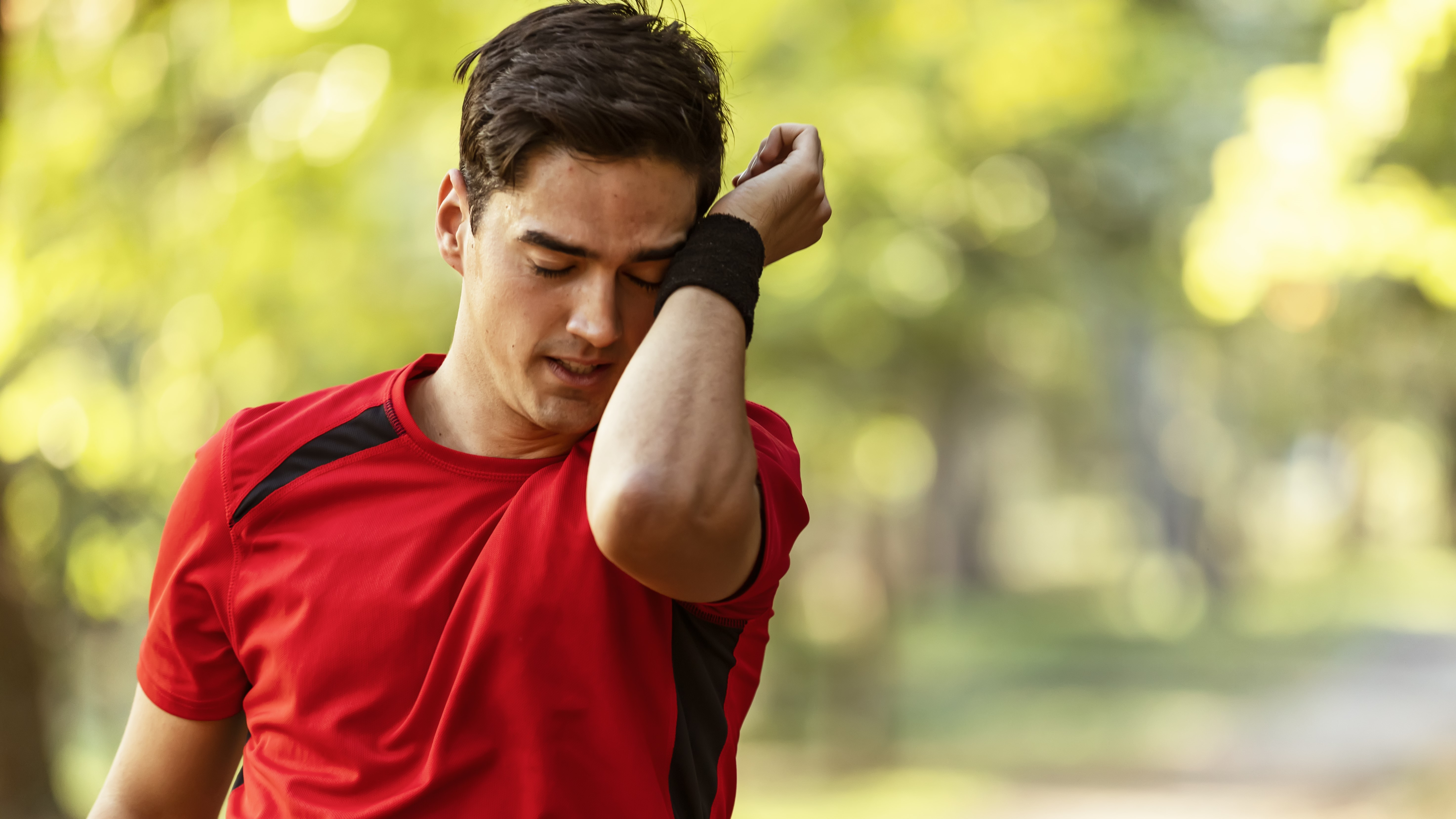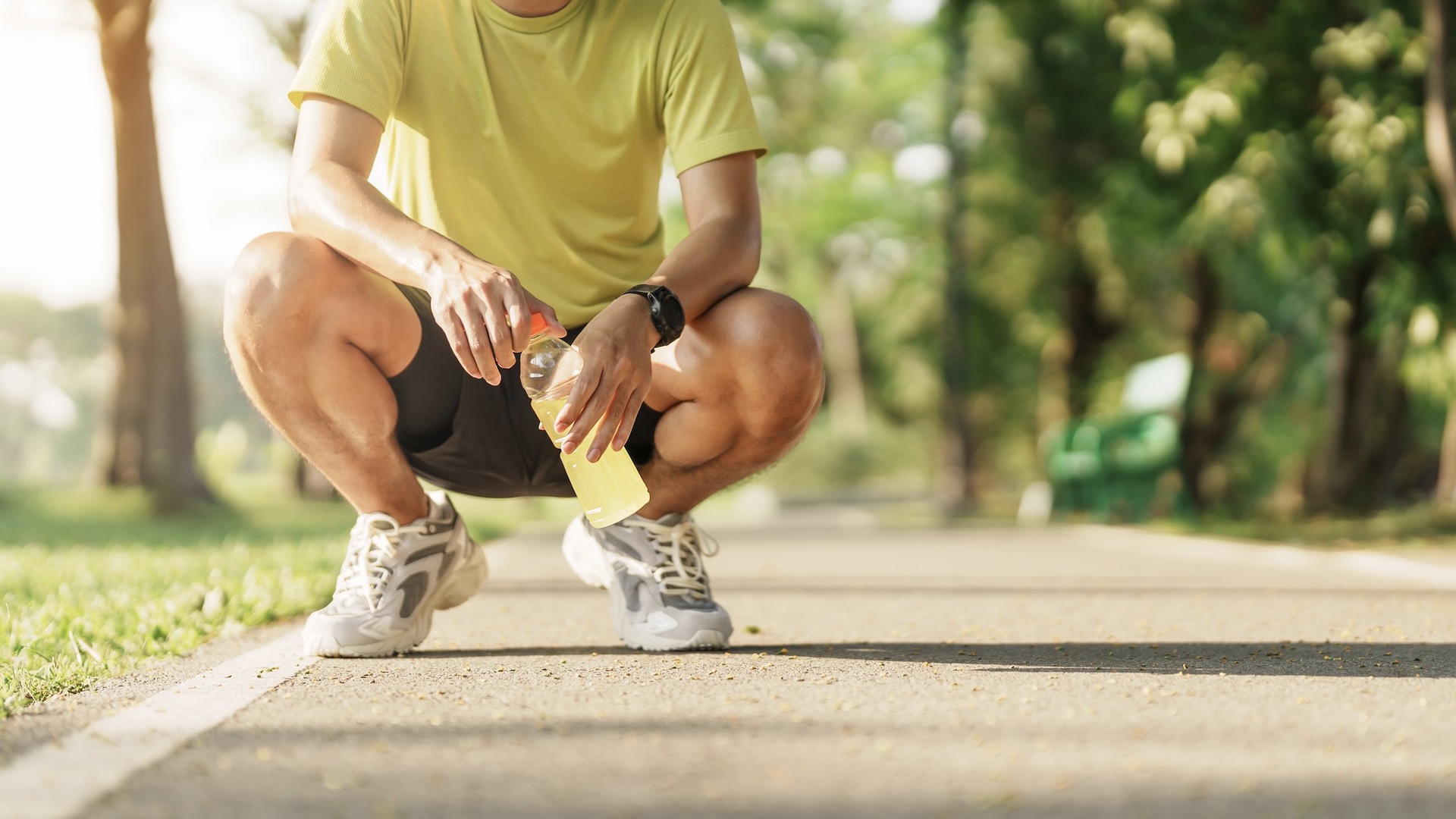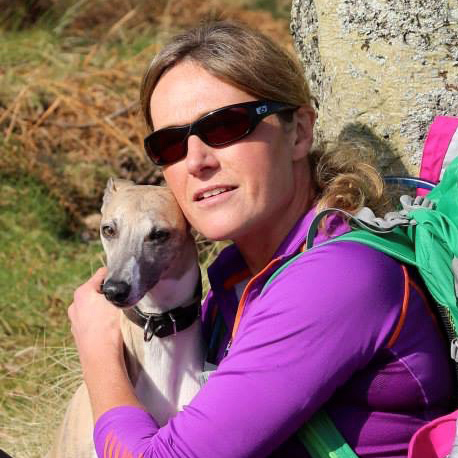Should you get a sweat test – and what will it tell you?
The reasons and benefits for athletes to take a closer at their sweat

Sweating is natural and it helps the body to regulate temperate, especially when exercising, but the negative side to sweating is that it leads to fluid and electrolyte losses. If we don’t refuel effectively, performance, whether running, hiking, cycling or doing any other sport, is negatively affected.
The reason for reduced performance is mainly due to the a decrease in blood volume and an increased strain on the cardiovascular system. But knowing how much fluid and electrolytes, especially sodium, to take for refuelling can be tricky and something of a trial-and-error exercise. That's where a more scientific approach can help.
Sweat testing and sodium
Sodium is the most important electrolyte in your sweat because this is what helps your body to absorb and retain fluid in the blood.
Abby Coleman, a sports scientist with Precision Fuel & Hydration, adds: “Sodium plays a key role in the body in a number of ways, in nerve transmission, muscle contractions and maintaining blood plasma volume, as well as cognitive function. All of these are incredibly important if your goal is to perform at your best.
“Since our bodies can’t manufacture salt, we need to replenish it to prevent losses. Sweat loss can be considerable, especially if you are exercising for long periods and in places where it is hot or humid.
“Also, some people have higher sweat rates or particularly salty sweat. These factors are genetically determined and everyone loses a different amount of sodium per litre of sweat. This is where a sweat test comes in.”
What does a sweat test tell you?
A sweat test will answer two questions: How much sweat do you lose during exercise and what are you losing in your sweat?
Advnture Newsletter
All the latest inspiration, tips and guides to help you plan your next Advnture!
Abby Coleman says: “To explain, a sweat test measures the sodium concentration in your sweet, or how salty your sweat is. In recent decades, there has been a more focused approach to sports science research to help the experts to understand how to best aid an athlete so that they rehydrate in the right way for optimum performance, especially in hot and humid conditions.”
Sweat testing is not just for the elite athletes and it is increasingly being used by runners of all levels, whether for races or for enhanced training.
When a sweat test is carried out it will show the loss of sodium per litre. This can vary from from as little as 200mg of sodium per liter of sweat to over 2g.
Abby adds: It’s important to look at the context of training, too. How long the sessions are, the performance level and where you are doing these. This allows us to create a personalised hydration system.”

Still not sure if you need a sweat test?
Ask yourself these questions:
- Are you a salty sweater?
- Do you get white marks on kit or skin during and after running?
- Do you crave salty foods in longer training sessions?
- Do you suffer cramps or feel unwell after longer runs?
- Do you have a running programme with lots of longer sessions?
- Are you a very sweaty person?
- Do you train or compete in hot conditions?
- Have you ever felt like your hydration hasn’t been right in a race?
How can a sweat test help?
A sweat test should be carried out by sports experts. For example, Precision Fuel & Hydration have sweat test centres. If taking a sweat test is not possible, there is a free online Fuel & Hydration Planner, which is designed to help you get an idea of your fluid/electrolyte requirements during training and racing so you can start refining your hydration plan through some trial and error.
After this, it is possible to work out, with the help of an expert, the amount of electrolytes you will require when you are running. These supplements can take the form of tablets, sticks and capsules.
For further evidence, take a look at a study in 2015 that discovered that athletes who replaced an adequate proportion of what they had lost in sweat, finished a 70.3 Ironman 26 minutes faster than those who didn’t.
A sweat test could help you to better understand your body, its needs while exercising, especially while ultra running, and how to properly fuel.
- The best trail running shoes: our top picks for grip and comfort

Fiona Russell is a widely published adventure journalist and blogger, better known as Fiona Outdoors. She is based in Scotland and is an all-round outdoors enthusiast with favorite activities including trail running, mountain walking, mountain biking, road cycling, triathlon and skiing (both downhill and backcountry). Aside from her own adventures, Fiona's biggest aim is to inspire others to enjoy getting outside and exploring, especially through her writing. She is also rarely seen without a running skort! Find out more at Fiona Outdoors.
